DLH Celebrates Black History Month 2023
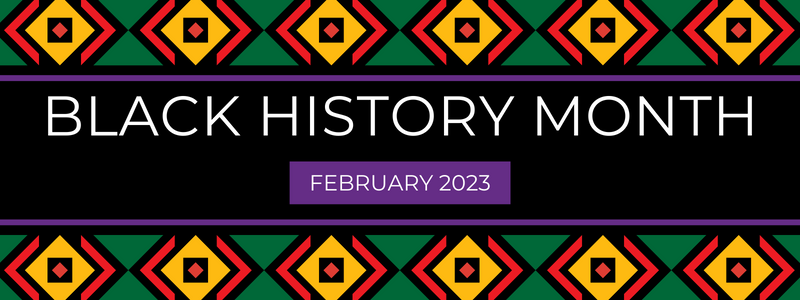
We are thrilled to kick off our annual celebration of Black History Month!
Carter G. Woodson, a Harvard-trained historian believed, “truth could not be denied and that reason would prevail over prejudice.” The organization he founded, the Association for the Study of Negro Life and History (ASNLH), launched Negro History Week in 1925 to pay tribute to the generations of Black Americans who struggled through adversity to contribute to the story of America. This February, we will join our fellow Americans in carrying forward the legacy and vision of Carter G. Woodson and others in celebrating the contributions of African Americans throughout history – particularly in the technology, health, research, military, and government realms in which DLH operates.
We invite you to participate in Black History Month by following the conversation on DLH social media channels, attending community events, encouraging meaningful conversations, and learning.
Today’s Featured Legacies
Timnit Gebru
Timnit Gebru is an American computer scientist and the Founder and Executive Director of the Distributed AI Research Institute (DAIR). She is a leading figure in the technology and artificial intelligence (AI) field and is responsible for monumental strides in access and inclusivity within that realm. Colleagues credit Gebru with reshaping ideas around what AI is and how it will impact the future of technology.
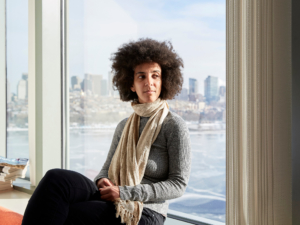
Gebru rose to prominence in 2020 during a contentious departure from Google. The company asked her to withdraw her name from an unpublished paper on ethics in AI. She refused and soon left the company. Now, Gebru and other scholars, activists, technologists, and regulators are collaborating on new policies and rules to set clearer boundaries for companies benefiting from automation. Her focus stems on the power brokers in the AI field – who is building AI, who benefits from it, and who is deciding what the future of AI will be.
Gebru aims to help stop the biases that are built into AI language models. As AI continues to become more prominent in daily life – in ways such as facial recognition, and digital assistants such as Siri and Alexa – Gebru wants to ensure disadvantaged groups are not negatively impacted. Common concerns include false arrests, healthcare discrimination, and pervasive surveillance in policing.
For more information, read Why Timnit Gebru Isn’t Waiting for Big Tech to Fix AI’s Problems by Time’s Billy Perrigo.
The Navy’s First Black Officers
Until 1942, Black men in the U.S. Navy could only hold jobs as cleaners and cooks. In 1944, thanks to the courage and dedication of thirteen men, that finally changed. Known as ‘the Golden Thirteen,’ these men were: Jesse Walter Arbor, Phillip G. Barnes, Samuel Edward Barnes, Dalton L. Baugh, Sr., George Clinton Cooper, Reginald E. Goodwin, James E. Hair, Charles Byrd Lear, Graham E. Martin, Dennis Denmark Nelson, John W. Reagan, Frank E. Sublett, Jr., and William Sylvester White. 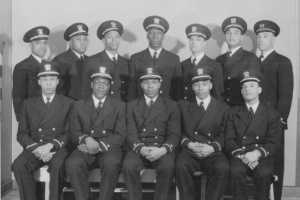
The story of the integration of the U.S. Navy is little discussed. In his book, The Golden Thirteen: How Black Men Won the Right to Wear Navy Gold, Historian Dan Goldberg uses oral histories and original interviews to tell the stories of the men responsible for desegregating the US. Navy during World War II.
These men faced opposition of all sorts – racist pseudo-science, epithets, mockery, and violence. But understanding the power of integration, the mission at hand, and the opportunities that would be available to Black Americans in the future should they succeed, the first class of Black Naval officers persevered. The group ultimately passed their exams with the highest average of any class in Navy history.
For more information, read The Forgotten Story of How 13 Black Men Broke the Navy’s Toughest Color Barrier by Politico’s Dan Goldberg.
Clara Adams-Ender
Adams-Ender served as Chief of the United States Army Nurse Corps from 1987 to 1991. She is a widely sought-after thought leader in the military health realm, and her renowned communication skills endeared her to patients and colleagues. With 60 years of healthcare experience and expertise, she continues to serve as a guide for our country’s health industry.
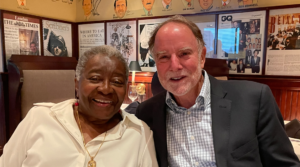
DLH Military Health Strategic Advisor John Armstrong (pictured) and CEO Zach Parker were fortunate enough to share a meal with Gen. Adams-Ender in 2021. Topics of discussion included the evolution of military health and General Adams-Ender’s prestigious nursing career.
We’ll be featuring many groups and individuals in the weeks to come, including:
- Adah Belle Samuel Thoms, a nurse who fought for the integration of Black women into nursing professions
- Melba Roy Mouton, a head computer programmer at NASA
- Kimberly Bryant, an electrical engineer who works hard to increase the number of women of color in the STEM fields
- Loney Clinton Gordon, a Black chemist, who was one of three women who developed a vaccine to prevent pertussis (whooping cough) in the 1940s
- And much more…stay tuned!
Follow DLH on social media below to stay up-to-date with all things DLH!

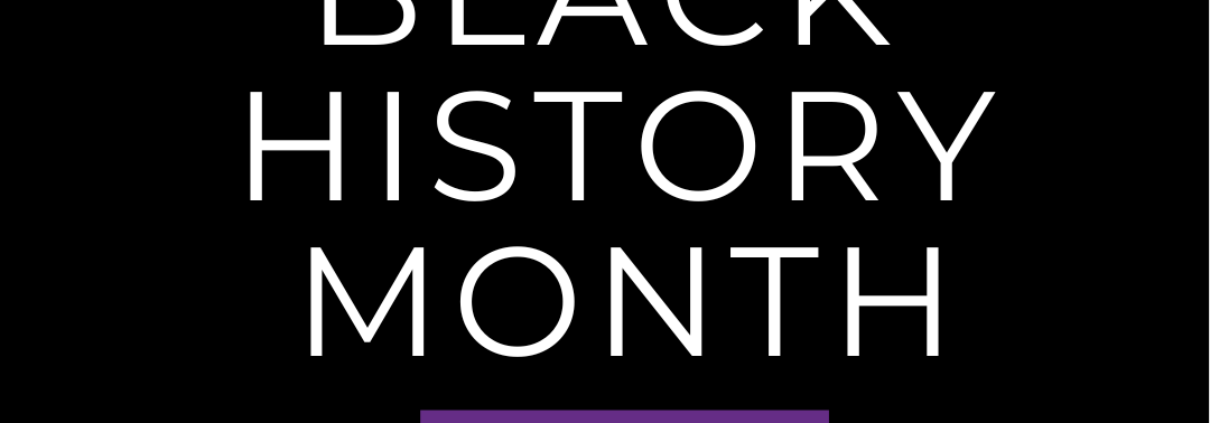







Leave a Reply
Want to join the discussion?Feel free to contribute!